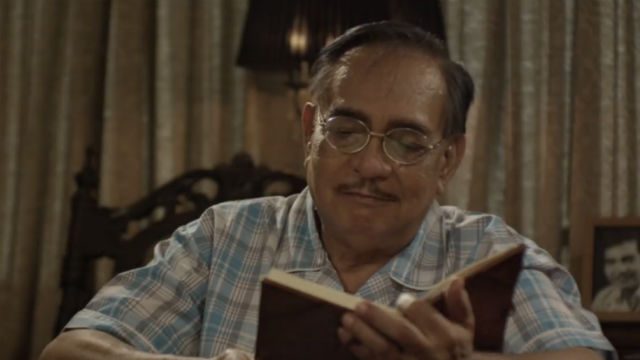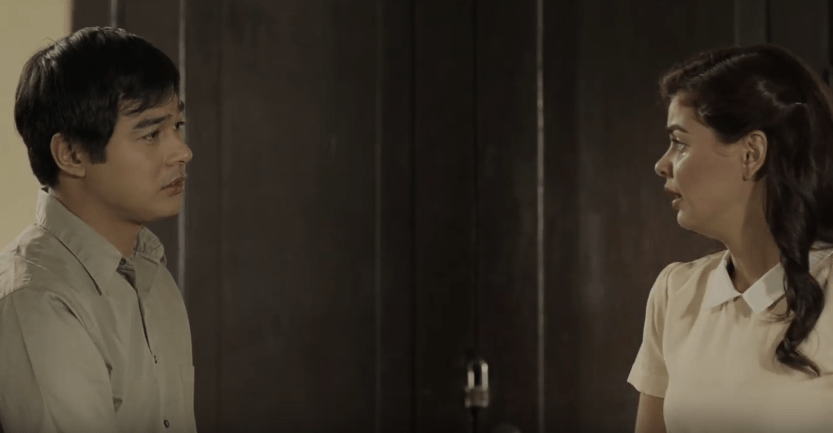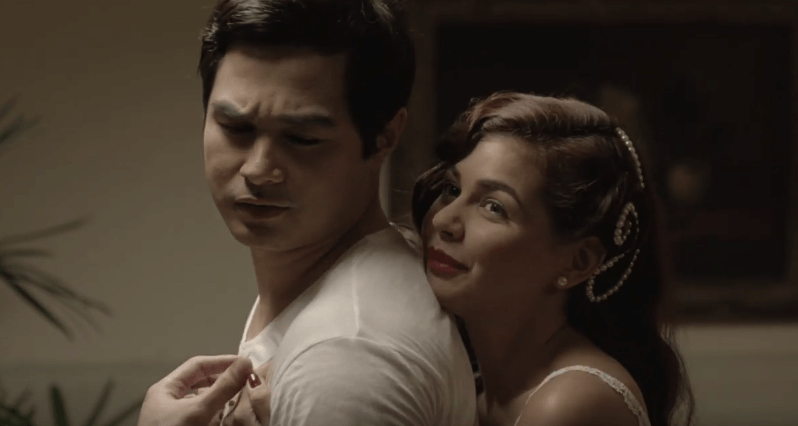SUMMARY
This is AI generated summarization, which may have errors. For context, always refer to the full article.

The first image of Dagsin is its most indelible.
Justo, a retired judge played brilliantly by Tommy Abuel, is facing the camera with a distraught but unwavering look. On his temple is the barrel of the small revolver he is firmly holding. He shoots the gun. The gun just clicks. Justo gets to live another day.
Blistering surefootedness
There is a blistering stubbornness in Dagsin that makes up for its being heavy-handed.
Its depiction of Justo in his old age as a faithless man engulfed by cynicism is circuitous, detailing in lengthy conversations with his adopted daughter (Lotlot de Leon) or his home nurse (Sue Prado) his agnosticism and his fatalistic ideologies. In the middle of the film’s obtuse spectacles of an old man being truly insufferable, it segues to scenes from the distant past where Justo, then a dashing man played by Benjamin Alves, courts his future wife Corazon, played by Janine Gutierrez, and founds a romance that lasts through wars and despotic regimes.
It really isn’t an elegant picture.
Much of the story is told through dialogue, with the plain visuals designed by cinematographer Dexter dela Pena serving as serviceable backdrop to verbose dialogue. The transitions are hardly sophisticated, with the film jumping from present to past and back with far too conspicuous shifts that are mostly preluded by a hint in the communication or a fevered dream. Magadia’s screenplay is as functional as it is lyrically weighty. There are obvious attempts at subtlety and finesse but it really is the intent for profundity that strikes as truly important.

Existential crisis
Despite its many faults, Dagsin is still astonishing work.
It manages to cover the existential crisis of an individual within the landscape of either a familiar romance or a sweeping period piece. Sure, Magadia skims through the scenes from the past, sacrificing a lot of the history between Justo and Corazon. Some of the events are revealed in monologues, or set-up as clues from the many conversations that make up the film.
Thankfully, Abuel, with just his innate ability to translate the misery dealt by the traumas and tragedies of the past, echoes the emotional heft of all the unseen struggles.
Surprisingly, the film, which tackles how a life of astounding accomplishment can also be torturous, is accompanied by refreshing levity. Dagsin isn’t just wallowing in self-loathing and anguish. It is also strangely droll, with plenty of its scenes being veiled with a healthy dose of humor.
The film as a whole feels like a stretch but there is enough earnestness in Magadia’s surefooted filmmaking to tide the less than perfect moments. Not all of the performances match the ferocity of Abuel, with a lot of the supporting cast from the flashbacks failing to register, but still, the film works even with all the flaws.
Novelty act

Dagsin is more than just a novelty act or a pageant of archaic customs and costumes.
Its discourse on the past and the present goes beyond platitudes. It dives into the wounds and the scars that are dealt by the atrocities of yesterday, connecting the wide landscape of history with the struggles of the individual. – Rappler.com

Francis Joseph Cruz litigates for a living and writes about cinema for fun. The first Filipino movie he saw in the theaters was Carlo J. Caparas’ Tirad Pass.
Since then, he’s been on a mission to find better memories with Philippine cinema.
Add a comment
How does this make you feel?
There are no comments yet. Add your comment to start the conversation.